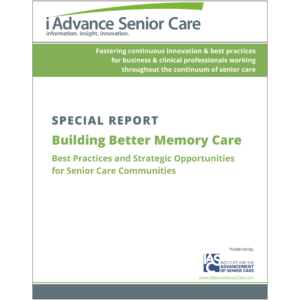Study: Wearing protective gowns, gloves may not protect residents from contracting MRSA
Two studies have found that it may be time to re-evaluate the use of personal protective gear by nursing home employees during the care of residents.
In one study, a targeted infection program (TIP) was used to reduce the prevalence of multidrug-resistant organisms (MDROs) and incident infections among residents with urinary catheters and feeding tubes. The study included preemptive barrier precautions, active surveillance for MDROs and staff education about these infections. The TIP resulted in decreased Methicillin-resistant Staphylocuccus aureus (MRSA) infections, and urinary tract infections were reduced.
The results of this study were published in JAMA Internal Medicine. Read it here.
Another study, conducted by the University of Maryland School of Medicine, found that nurses who wore protective gear (gloves and gowns) before dressing, bathing, toileting or cleaning a resident's sheets were more likely to cause MRSA transmission. Approximately 28 percent of residents were colonized with MRSA, according to the study. Most of the contamination was found on gloves.
Find the results of the U. Maryland study here.
Related articles:
How to prevent MRSA transmission between nursing home residents, workers

Megan Combs was Associate Editor of I Advance Senior Care / Long Term Living from 2013-2018.
Related Articles
Topics: Activities , Clinical , Facility management , Operations











